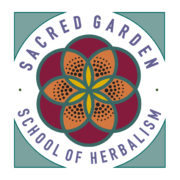UPCOMING EVENTS
Conscious Kids Story & Tea Time
with Lakeja Baylor

Foundational Herbology
9 month program is now enrolling!

Registration closes March 15th
+++++++++++++
Women’s Herbal Wellness Class Series
with Alicia Garza
Grounded Sound Baths
with Terrie Weaver

Fridays March 6th & 20th
6:00 pm
*************
3-Day Immersion: Reading the Body Immersion
with Margi Flint

October 23rd-25th : 10am-4pm
Hold your spot here







Cacao
/in Herb of the Month /by Ashley DavisIn the spirit of Autumn Equinox, which is all about the balance between polarities (masculine/feminine, light/dark, hot/cold, inward/outward, etc.) I’m inspired to share about the medicine of Cacao, theobroma cacao (the plant that chocolate comes from).
The Essence of Cacao
I have used cacao for years as a heart opener and an aphrodisiac, but only recently learned that its essence helps to balance the masculine and feminine polarities within us. We carry Cacao Spirit Essence by Brigid’s Way, which comes with this description:
“Releases and dissolves pains and wounds held in the body, particularly in the female breasts and male genitals. Helps to heal limiting beliefs around sex, and see the Divine aspect of Lovemaking. Facilitates ecstatic union of the masculine and feminine, as well as sensuality.”
This certainly explains the aphrodisiac effects of cacao, but masculine and feminine energies are not limited to gender and sexuality. It’s really more about yin and yang and the primordial separation of unified source energy into two poles, which simultaneously attract and repel one another in a dance that creates life. We are all seeking to unify these opposite forces within us (although most of us are looking for something outside of ourselves to complete us). When we do balance these energies within our own bodies, we experience amplified bliss, energy and power.
History of Chocolate
The cacao tree has been cultivated for 11,000 years and was considered by Mesoamerican empires including the Mayans and the Aztecs. The Aztecs believed that cacao seeds had been brought from paradise and that wisdom and power came from eating the fruit of the cacao tree. The Aztecs prepared cacao into a thick, bitter and frothy brew made of mashed corn flour, roasted cacao beans and water and flavored with cinnamon and chili pepper. And it was primarily consumed by the elite, including nobility and warriors. It was served at weddings and was used in offerings and rituals, including human sacrifice. The Aztec king Montezuma supposedly drank 50 goblets a day and an extra hefty dose of the beverage before visiting his harem.
The hot chocolate drink that we think of today is credited to Spanish nuns living in Chiapas, who added cane sugar, vanilla and cinnamon, omitting the chilis and salt. They were so enamored with their creation that they would drink it in mass, despite the bishop’s attempt to suppress this behavior. Claiming that it helped them overcome ‘the weakness of the stomach’ and thus assisted their efforts to worship, they were allowed to continue.
Therapeutics of Cacao
Preparations
Cacao can be enjoyed as a chocolate bar, hot cocoa, added to smoothies, baked goods, or even teas and liqueurs. Dark chocolate is the best for medicinal purposes (look for 70% cacao or higher). Cacao pairs well with rose, damiana for enhanced heart-opening effect. Maca, damiana, ginseng or epimedium will enhance its stimulating aphrodisiac qualities. And CBD, skullcap, kava or hops will create a more relaxing yet euphoric experience. Check out some delicious recipe ideas below:
My favorite way to enjoy cacao is with a little bit of CBD (25mg), either as an infused chocolate square or a hot cocoa with CBD added. Then I light some incense, turn on some music and either dance, do some yoga or meditate depending on my energy level. You can also take a walk, journal, paint/draw, play music, hang out with friends, or anything else that makes you feel good and keeps you out of your analytical mind. I highly recommend carving out an hour or more in the evening, or whenever you can fully relax and spend some time doing whatever brings you joy.
Ceremonial Cacao
Cacao ceremonies are a great way amplify the effects of cacao, to connect with the spirit of the plant, to more fully occupy your heart space, and to experience an expanded state of consciousness. A Cacao ceremony is simply ingesting cacao with intention. The intention is up to you, but since cacao is so great at opening the heart chakra and uplifting your mood, intentions related to joy, connection, and self-love are good suggestions. Ceremonial grade cacao is ideal, but you can use any high quality 80-100% cacao (in bar or paste form rather than powder). It can be a solo or a group experience. Read more about how to create your own cacao ceremony HERE.
*These statements have not been evaluated by the FDA. This article is not meant to prevent, treat or cure any disease.